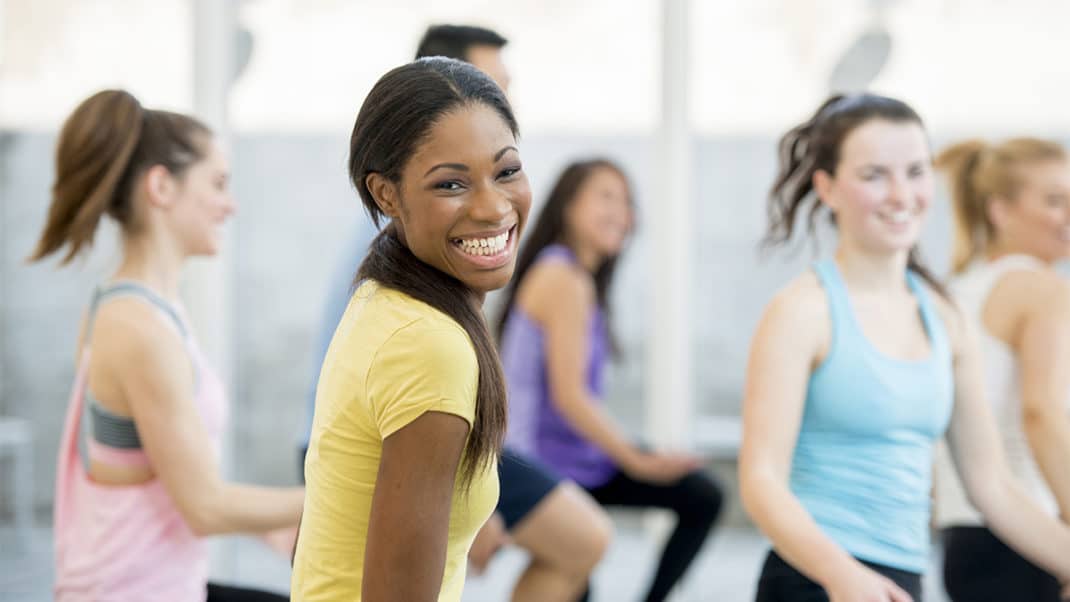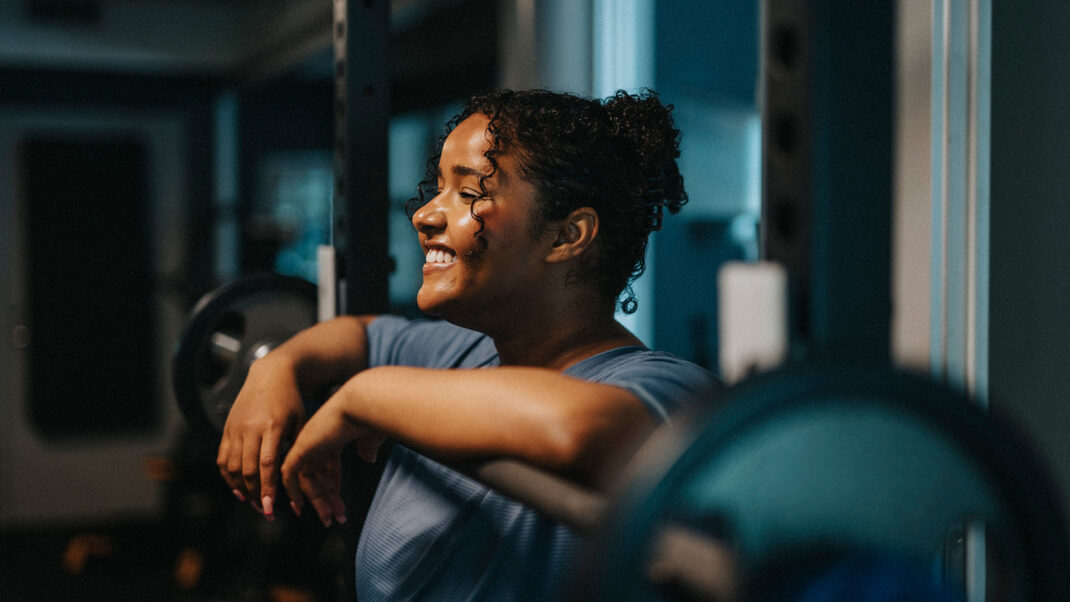
The pandemic has taken its toll on many people’s mental health. The American Psychological Association’s Stress in America™ poll revealed that parents, essential workers and people from communities of color were all more likely to report mental and physical health consequences and that Gen Z adults (ages 18–24) were the most likely to report a worsening of their mental health and wellness compared with pre-pandemic times (APA 2021). More and more people are seeking relief from chronic stress, anxiety and depression, even if it does not rise to clinical levels.
When you’re considering your New Year’s resolutions, you may want to center on more than weight loss or getting stronger. Focus on total health.
The good news is that exercise can help you provide mental health and wellness benefits without any of the side effects of pharmaceutical treatments. Shirley Eichenberger-Archer, JD, MA, internationally acknowledged integrative health and mindfulness specialist, best-selling author of 16 fitness and wellness books translated into multiple languages, and contributing editor to Fitness Journal, gives the lowdown.
Evidence-Based Benefits of Exercise
“Physical activity has a very, very large body of research to support that it is consistently associated with physical and mental benefits,” says Patrick J. O’Connor, PhD, FACSM, professor of kinesiology at the University of Georgia in Athens. And you can experience these benefits of physical activity regardless of age, abilities, ethnicities, shape or size (CDC 2021). These benefits include
- reduced feelings of anxiety—both short-term (state anxiety) and long-term (trait anxiety)—in adults
- improved cognition in children ages 6–13 and adults over 50
- fewer depression risks for children from age 6 to adults of all ages
- improved sleep
- better quality of life
- lower risk of dementia, including Alzheimer’s disease
And here’s more good news: Many mental health benefits occur immediately after just one session of moderate-to-vigorous physical activity (CDC 2021).
7 Action Items
Experts offer the following tips for how to boost the mental health benefits of physical exercise.
Educate yourself. “Most [people] separate the physical from the mental,” says Farel Hruska, director of education and culture at Chuze Fitness in San Diego. She advises that we all learn about “the vast benefits exercise can offer to help you support your holistic self.”
Dig deep. Consider your goals. If you want to lose weight, why do you want to lose weight? To connect more deeply with yourself, think about what weight loss could mean for your life? How can it make your life better? Get specific.
Be compassionate. Be kind to yourself. If you struggle with mental illness, you can find support. Exercise can help even if it isn’t a “cure.”
Track mood. “What gets recorded tends to get repeated,” says Hruska. See if you can connect better moods with workout days. Use a notes app, calendar, or app like MoodTracker.com, MyTherapy, RealifeChange® or Daylio to observe consistent moods and connect changes in mood with behaviors and events.
Understand the fatigue barrier. Stress, anxiety and depression can make you feel tired. Know that movement can help. “A top reason for not exercising is feeling tired . . . paradoxically, low-to-moderate physical activity makes most people feel energized, not fatigued,” says O’Connor.
Do shorter workouts. Don’t skip exercise if you don’t have time. Search for workouts that deliver results in less time. Find short videos on YouTube or social media.
Look for a welcoming environment. Search for personal trainers and fitness facilities where you feel accepted and not awkward and foolish. For example, Mark Fisher, founder of Mark Fisher Fitness and Business for Unicorns in New York City, says, “We help people who hate gyms find a fitness home they actually love.”
If you are worried about safety, look for a place where you can wear a mask or work one on one with a trainer at a private facility.
See also: Exercise Is Good for Mental Health
References
APA. 2021. One year later, a new wave of pandemic health concerns. Accessed Apr. 10, 2021: apa.org/news/press/releases/stress/2021/one-year-pandemic-stress. CDC (Centers for Disease Control and Prevention). 2021. Benefits of physical activity. Accessed Apr. 10, 2021: cdc.gov/physicalactivity/basics/pa-health/index.htm.




